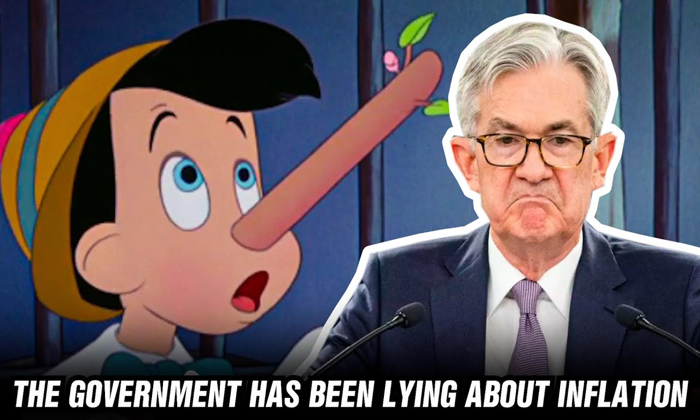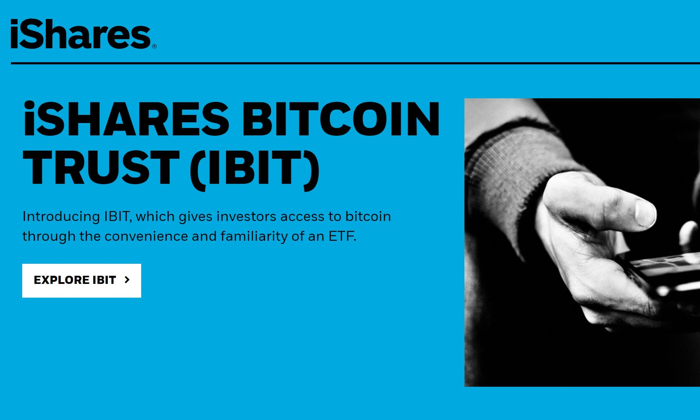Federal Reserve Chair Jerome Powell’s inflation warning on April 4 has intensified discussions around the potential impacts of President Donald Trump’s tariffs on the U.S. economy. With new 10% tariffs imposed, Powell noted that these moves could elevate inflation rates and hamper economic growth, raising significant concerns for both investors and policymakers. He asserted that the Federal Reserve will maintain interest rates stability for now, holding steady at 4.25% to 4.50%, until they gain more clarity on the situation. This caution reflects a broader uncertainty surrounding inflation expectations in the wake of tariff-related price pressures. As Powell emphasized, it is crucial for the Fed to keep long-term inflation expectations well anchored to prevent a temporary spike in prices from evolving into a persistent inflation dilemma.
The recent warning from Jerome Powell regarding inflation brings to light the intricate relationships between trade policies and economic health. The impact of newly instituted tariffs on consumer prices and overall economic momentum poses a pivotal concern for the Federal Reserve’s monetary strategies. In his address, Powell highlighted the agency’s commitment to ensuring price stability amidst the fluctuating landscape of U.S. economic growth and inflation expectations. His remarks underscore the delicate balance the Fed must maintain as they evaluate varying external pressures, including political influences like those from the Trump administration. As the nation navigates these challenges, monitoring interest rates becomes vital in guiding the economy through potential turbulence.
Jerome Powell’s Inflation Warning and Its Implications
Federal Reserve Chair Jerome Powell’s recent warning about rising inflation due to President Donald Trump’s tariffs highlights a critical juncture for the U.S. economy. As tariffs are expected to impact pricing structures across various sectors, Powell underscored the need for the Fed to maintain a close watch on inflation expectations. The concern is that a temporary surge in prices could morph into a more persistent inflation issue, thus challenging the central bank’s mandate of price stability.
Powell emphasized that the Fed is committed to keeping inflation expectations anchored despite the potential shocks from Trump’s trade policies. This approach is crucial to ensuring that a short-lived increase in prices does not escalate into an ongoing inflation challenge. With core inflation currently above the 2% target, the Fed remains vigilant, suggesting that market participants should tread carefully regarding their expectations for interest rate cuts.
Frequently Asked Questions
What did Jerome Powell warn about inflation related to Trump tariffs?
Jerome Powell, the Chair of the Federal Reserve, warned that President Trump’s recently announced tariffs could raise inflation and slow economic growth. He indicated that the Fed would maintain interest rates until the impacts of these tariffs on the economy become clearer.
How might Federal Reserve policies change in response to Jerome Powell’s inflation warning?
Following Jerome Powell’s inflation warning, the Federal Reserve is likely to remain cautious with its policies. Powell emphasized the need for patience and a clearer understanding of economic conditions before making any changes to interest rates, currently set between 4.25% and 4.50%.
What is the impact of Jerome Powell’s inflation warning on US economic growth?
Powell’s inflation warning suggests that the tariffs imposed by the Trump administration may hinder US economic growth. While he believes the economy is in a good place, the uncertainty surrounding tariffs and inflation may affect consumer confidence and economic expansion.
How does Jerome Powell’s inflation warning relate to interest rate stability?
Jerome Powell’s inflation warning highlights concerns about interest rate stability. He stated that more data is needed before the Fed can adjust interest rates. His caution indicates that any potential increases in inflation from tariffs could prompt a reassessment of rate policies in the future.
What are inflation expectations following Jerome Powell’s warning?
Following Jerome Powell’s warning, inflation expectations could rise, particularly if the tariffs lead to sustained price increases. Powell emphasized the importance of anchoring longer-term inflation expectations to prevent a temporary spike in prices from evolving into persistent inflation.
How did the financial markets react to Jerome Powell’s inflation warning?
Financial markets reacted to Jerome Powell’s inflation warning with increased expectations that the Federal Reserve might lower interest rates in the coming months. However, Powell signaled that these expectations might be premature if inflation risks continue to rise due to the impacts of the tariffs.
What does Jerome Powell say about the uncertainty of the economic impact from Trump tariffs?
Jerome Powell acknowledged significant uncertainty regarding the economic impact of Trump’s tariffs. He noted that the full effects, especially on inflation and global trade dynamics, remain unclear, emphasizing the need for the Fed to assess the situation carefully.
How does Jerome Powell’s independence affect his response to Trump’s inflation concerns?
Despite President Trump’s calls for the Federal Reserve to cut rates, Jerome Powell reaffirmed the Fed’s independence in managing inflation and employment. His response to inflation concerns demonstrates the Fed’s commitment to its dual mandate despite political pressures.
| Key Point | Details |
|---|---|
| Inflation Warning | Jerome Powell warns that new tariffs could raise inflation and slow growth. |
| Monetary Policy | The Fed will not change interest rates until they assess the impact of the tariffs. |
| Current Economic Condition | US economy is stable with low unemployment, but inflation is above the 2% target. |
| Market Expectations | Financial markets predict possible rate cuts, but Powell says expectations might be premature. |
| Political Pressure | Trump’s pressure on the Fed to cut rates is dismissed; Powell emphasizes Fed’s independence. |
| Tariff Effects | There is uncertainty about how tariffs will affect inflation and the economy in the long term. |
Summary
Jerome Powell’s inflation warning highlights the potential consequences of tariffs on the US economy, signaling a cautious approach to interest rates. As the Federal Reserve navigates a complex economic landscape, the emphasis is on maintaining inflation expectations and not rushing into policy changes amidst uncertainty. Powell’s remarks underscore the importance of assessing the long-term effects of political decisions on inflation and economic growth.
Federal Reserve Chair Jerome Powell recently sounded an inflation warning regarding the impacts of President Donald Trump’s trade policies. During a speech on April 4, Powell expressed concern that the newly imposed tariffs could disrupt economic stability and escalate inflation levels. His caution comes at a time when inflation expectations are becoming a focal point of Federal Reserve policies, as the central bank aims to strike a balance between managing rising prices and supporting US economic growth. Although the Fed has maintained interest rate stability by holding the benchmark rate steady, Powell emphasized the importance of monitoring the unfolding effects of these tariffs. As global trade dynamics shift, Powell’s insights signal a careful approach to navigating potential inflationary challenges ahead.
In light of recent trade developments, it’s crucial to consider the broader implications of tariff impositions on economic stability. The potential for inflationary pressures to rise has been a topic of discussion among financial experts, particularly in the context of how these changes may influence monetary strategies. With the Federal Reserve under scrutiny for its interest rate decisions and inflation management, the market is left to ponder whether current trends will necessitate a shift away from existing monetary policies. Economic growth remains strong, but the uncertainty surrounding tariffs and their impact calls for vigilance. As Powell navigates this complex economic landscape, understanding the interplay between trade policies and inflation expectations will be vital for both policymakers and investors alike.















